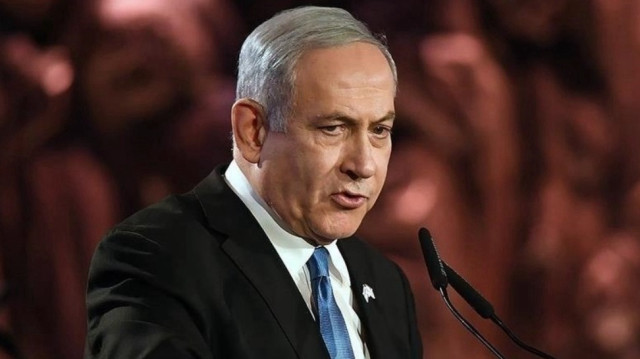
Bloc denounces all Israeli settlement activities as violations of international law
The foreign ministers of 31 Arab and Islamic countries, along with the secretaries-general of the Arab League, the Organization of Islamic Cooperation (OIC), and the Gulf Cooperation Council (GCC), on Friday strongly condemned Israeli Prime Minister Benjamin Netanyahu’s recent statements on the so-called “Greater Israel,” warning that they threaten Arab national security and regional stability.
“These statements represent a grave disregard for, and a blatant and dangerous violation of the rules of international law and the foundations of stable international relations,” they said in a joint statement. “They also constitute a direct threat to Arab national security, to the sovereignty of states, and to regional and international peace and security.”
Netanyahu told news channel i24 on Tuesday that he feels “very attached” to the vision of a Greater Israel. He said he considers himself “on a historic and spiritual mission” which “generations of Jews that dreamt of coming here and generations of Jews who will come after us.”
“Greater Israel” is a term used in Israeli politics to refer to the expansion of Israel’s territory to include the West Bank, Gaza, and Syria’s Golan Heights, with some interpretations also including Egypt’s Sinai Peninsula and parts of Jordan.
The bloc stressed that while member states remain committed to international legitimacy and the UN Charter on prohibiting the use or threat of force, they “will adopt all policies and measures that preserve peace, in a manner that serves the interests of all states and peoples.”
The statement also condemned the approval by far-right Israeli Finance Minister Bezalel Smotrich of a new settlement building in the occupied West Bank and his rejection of a Palestinian state, calling this a “flagrant assault” on the Palestinian people’s right to an independent, sovereign state with East Jerusalem as its capital.
The bloc reiterated that Israel has no sovereignty over any part of the occupied Palestinian territories and denounced all Israeli settlement activities as violations of international law and UN Security Council Resolution 2334. It reaffirmed the advisory opinion of the International Court of Justice, which found Israel’s occupation illegal and called for its immediate end.
The statement warned of the “grave dangers” of Israel’s expansionist policies in the West Bank, including daily incursions into Palestinian towns and refugee camps, settler violence, and attacks on Christian and Muslim holy sites, particularly Al-Aqsa Mosque. These actions, the ministers said, fuel the cycle of violence and hinder prospects for peace.
The bloc also condemned “Israel’s crimes of aggression, genocide, and ethnic cleansing” in the Gaza Strip and reiterated its call for an immediate ceasefire, unrestricted humanitarian access, and an end to the blockade, which has created famine-like conditions and collapsed Gaza’s healthcare system.
They categorically rejected any plans to displace Palestinians “under any pretext” and held Israel fully responsible as the occupying power for the humanitarian catastrophe in the enclave.
Emphasizing that Gaza is an integral part of the occupied Palestinian lands, the bloc voiced support for the State of Palestine to assume full governance over Gaza and the West Bank under a unified authority, within the political program of the Palestine Liberation Organization (PLO), the sole legitimate representative of the Palestinian people.







